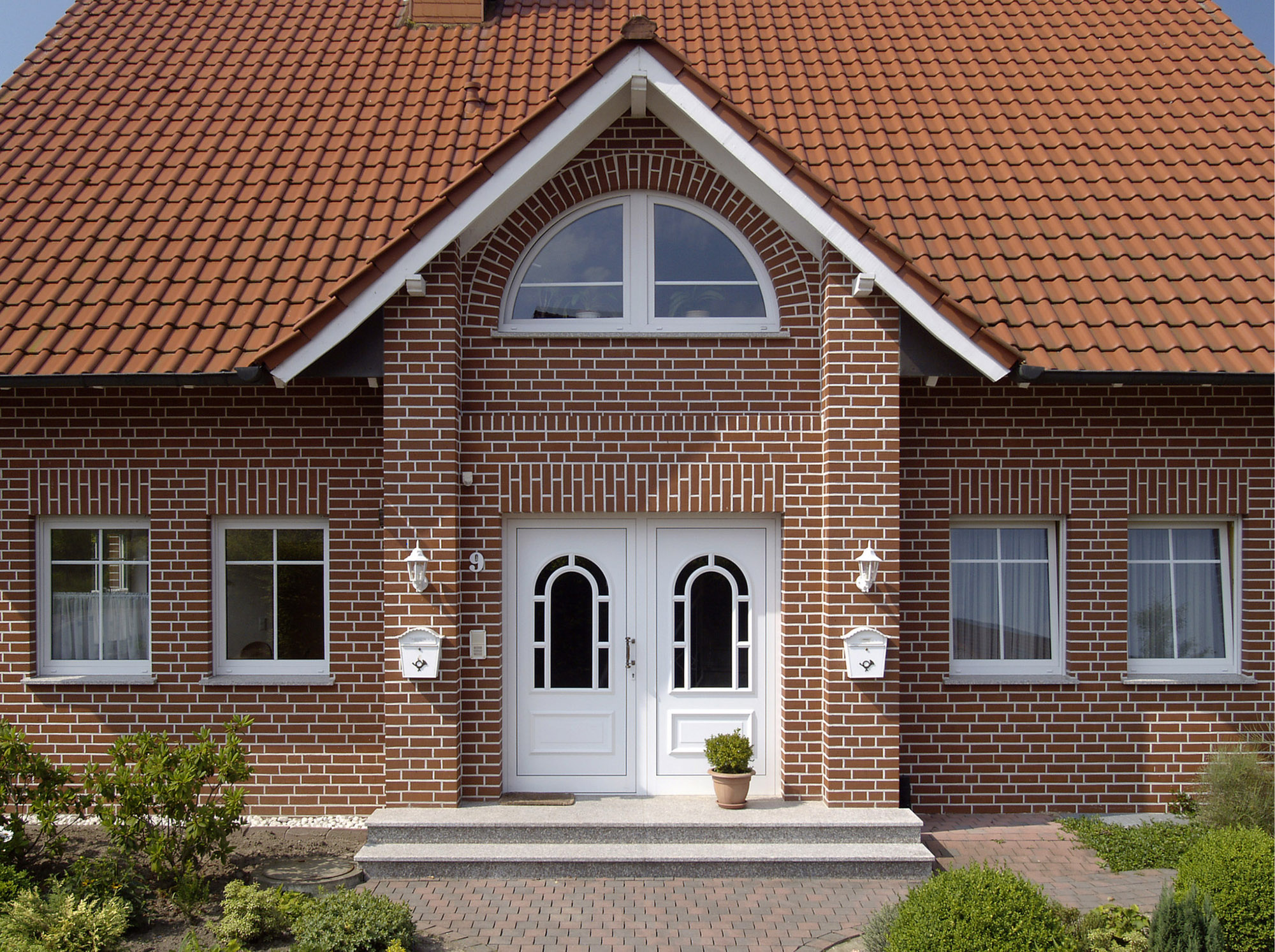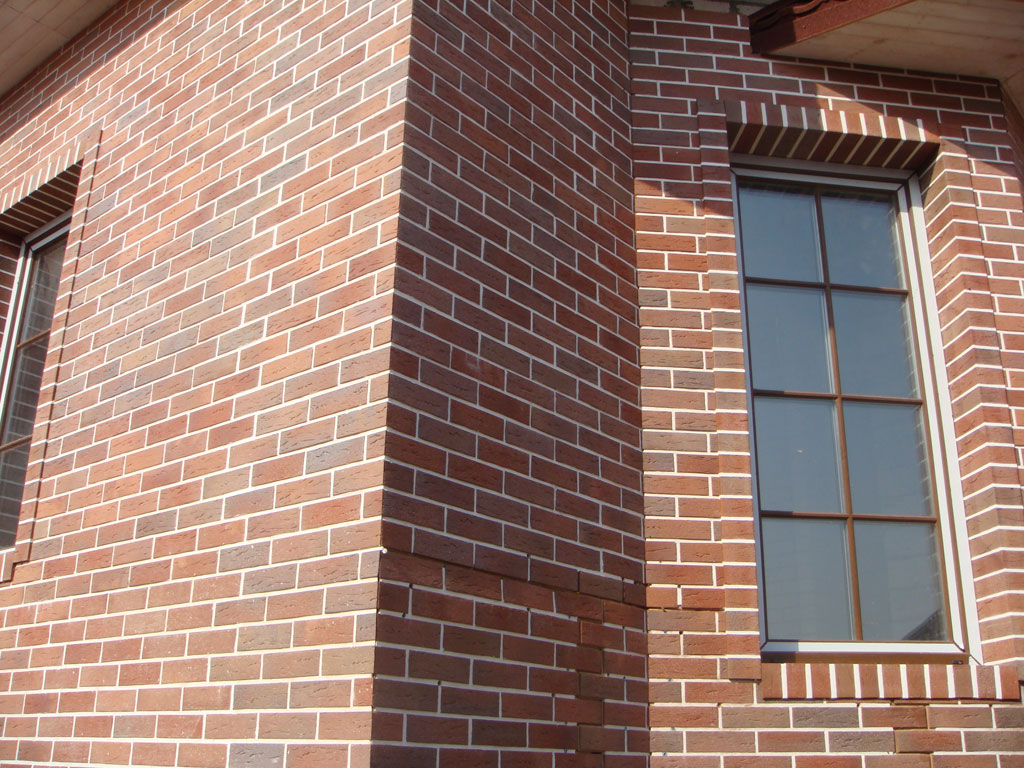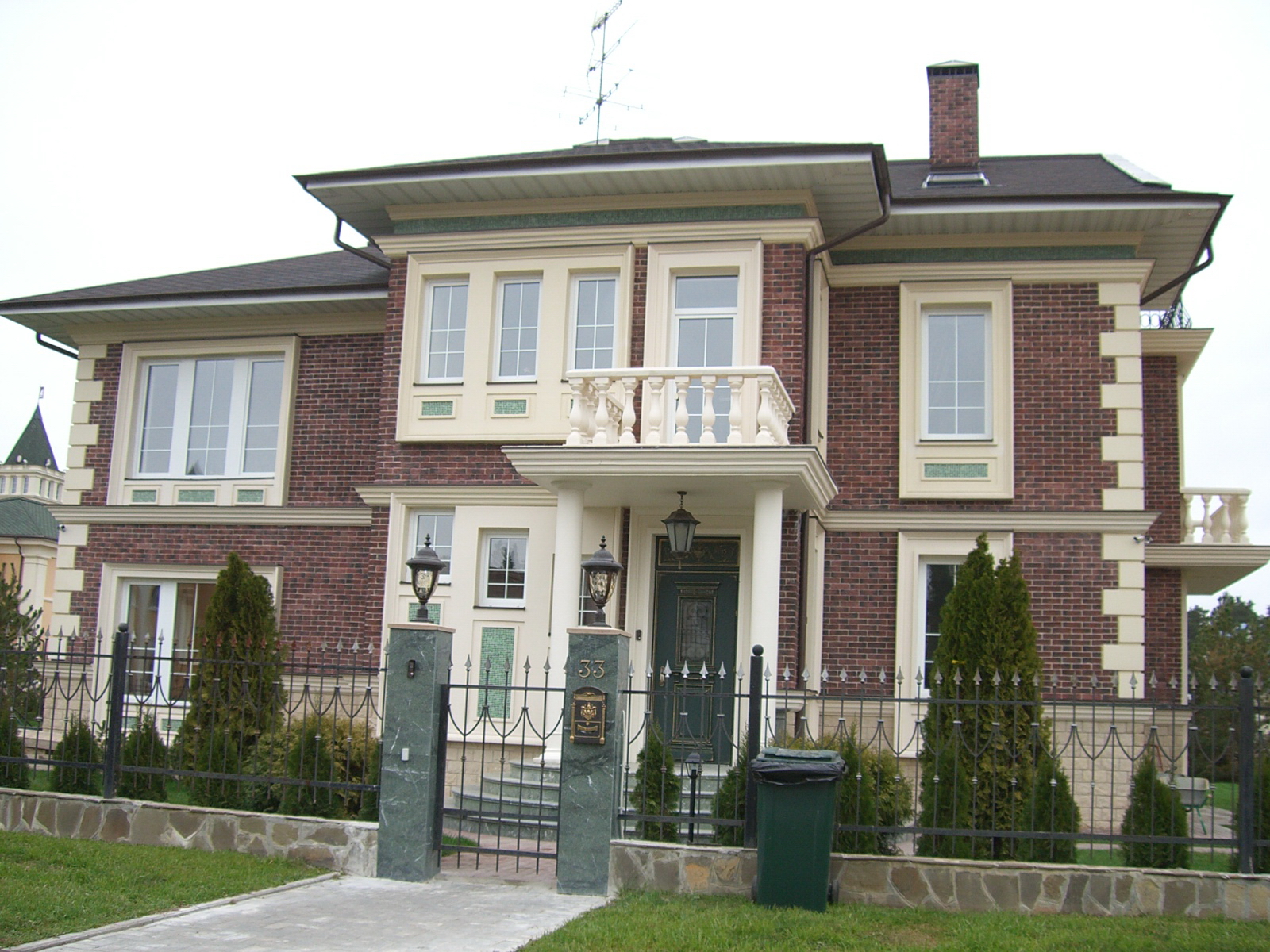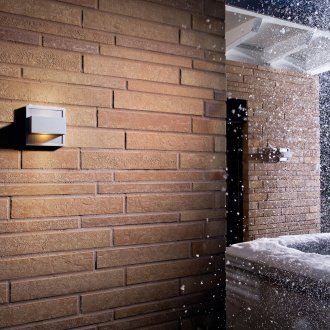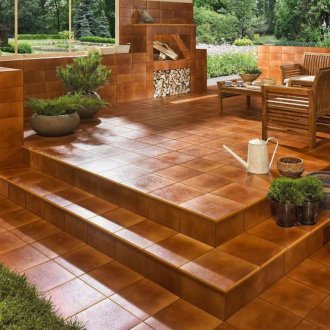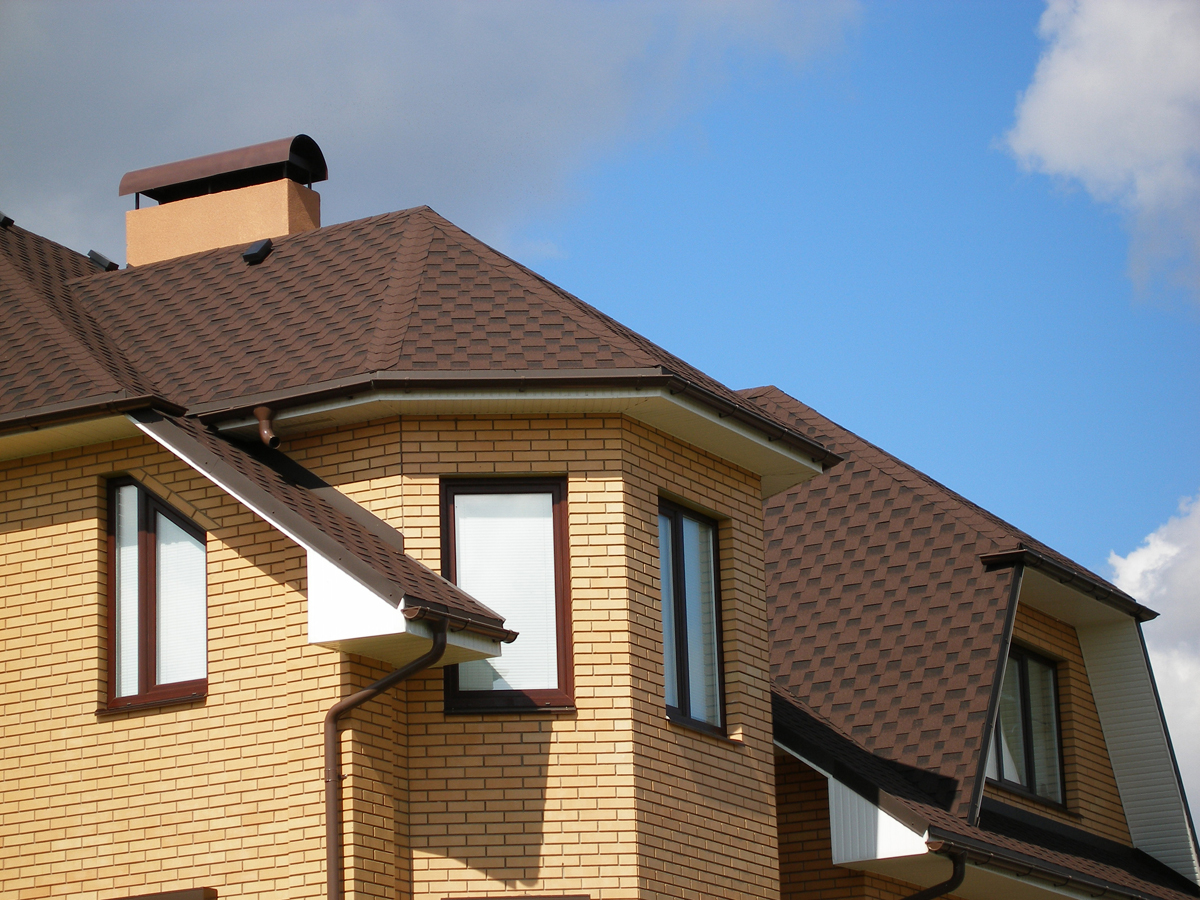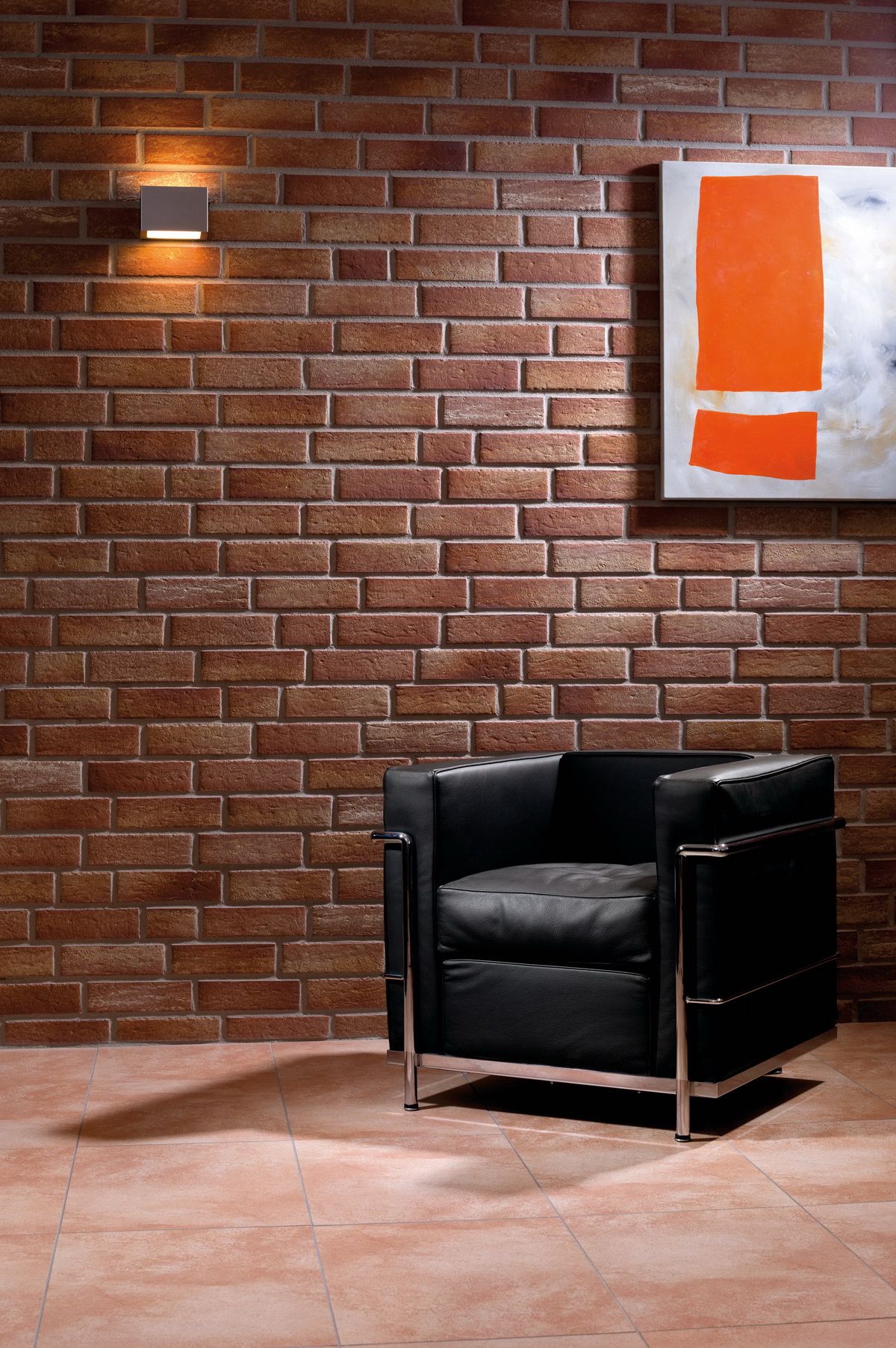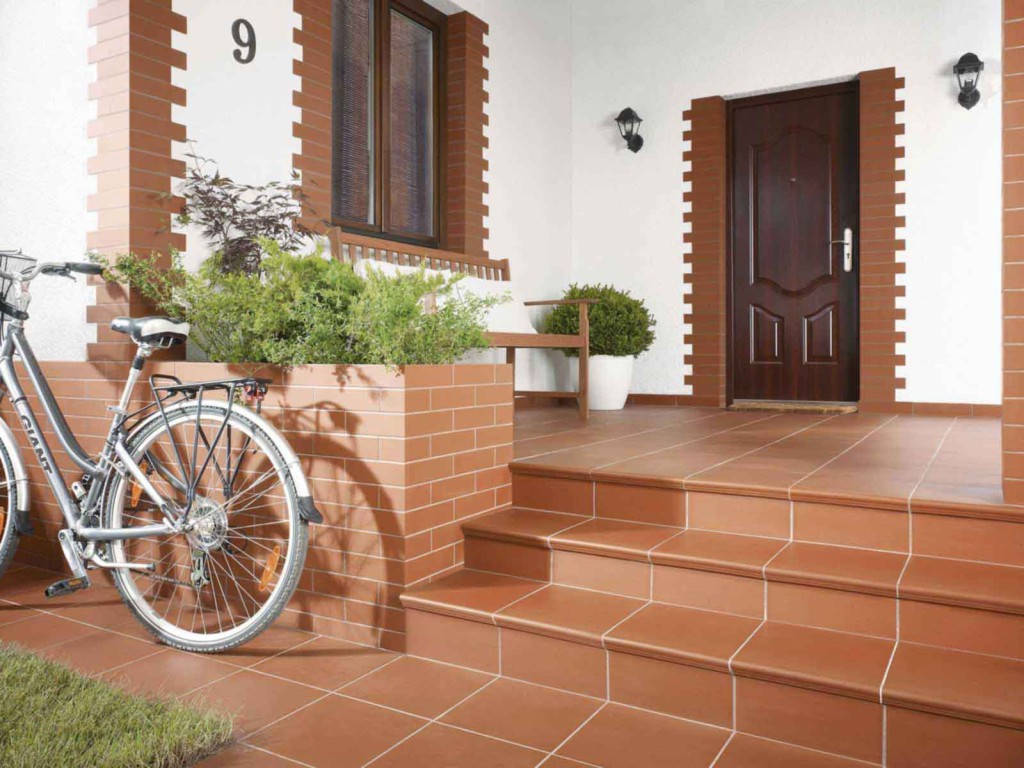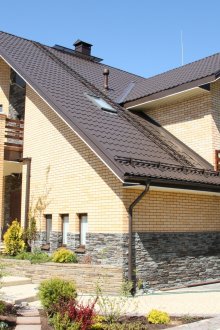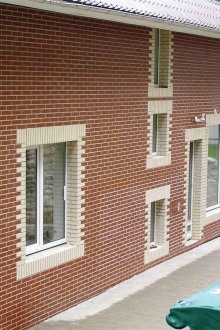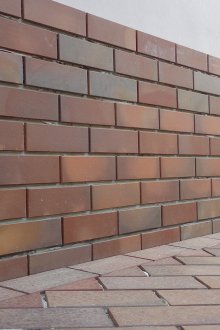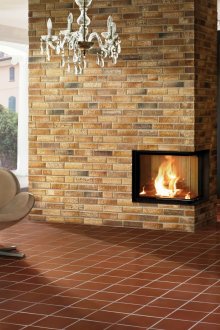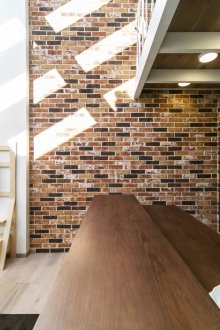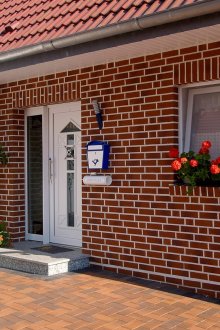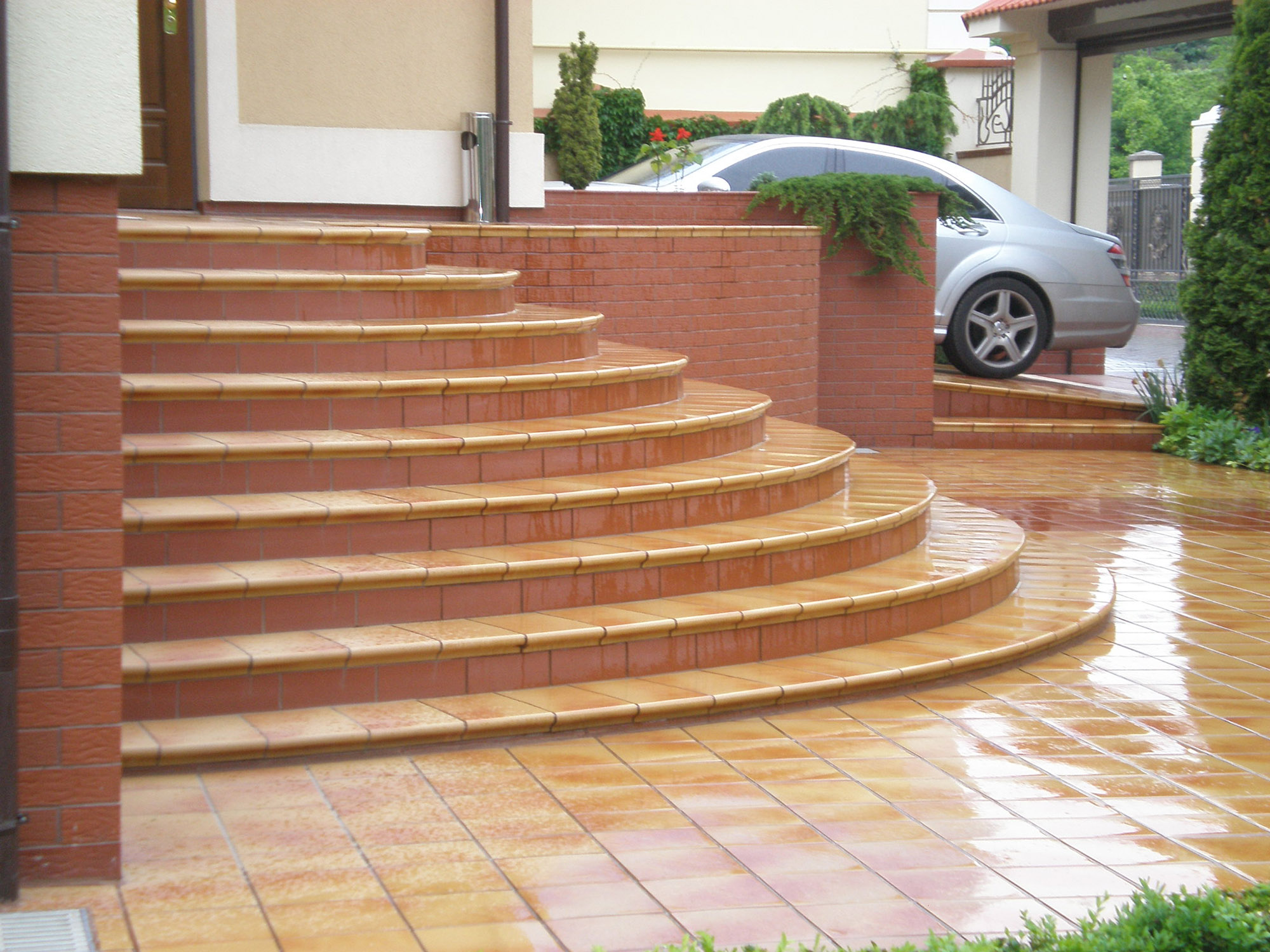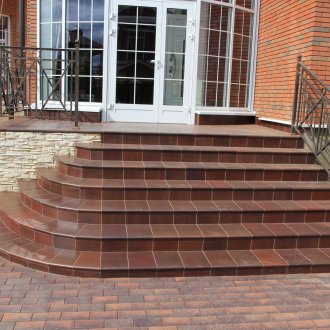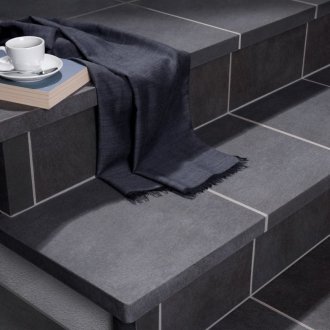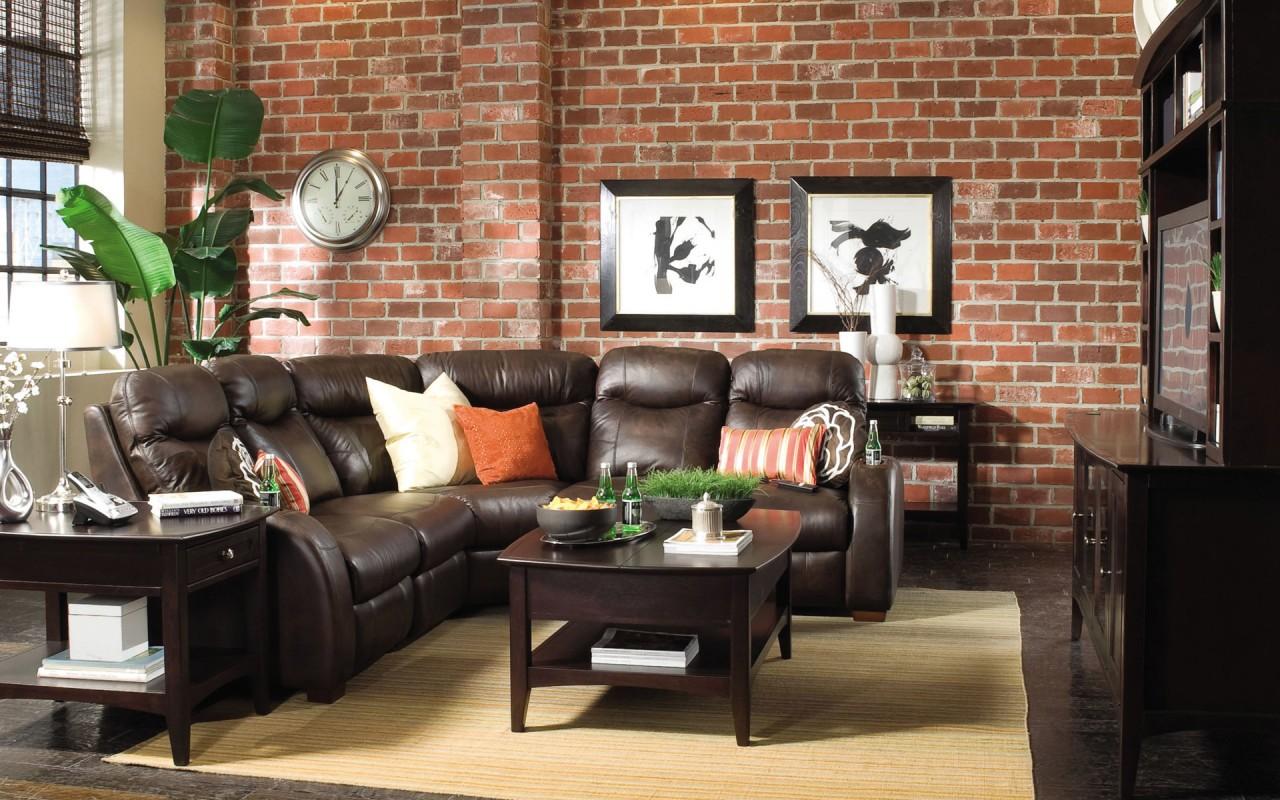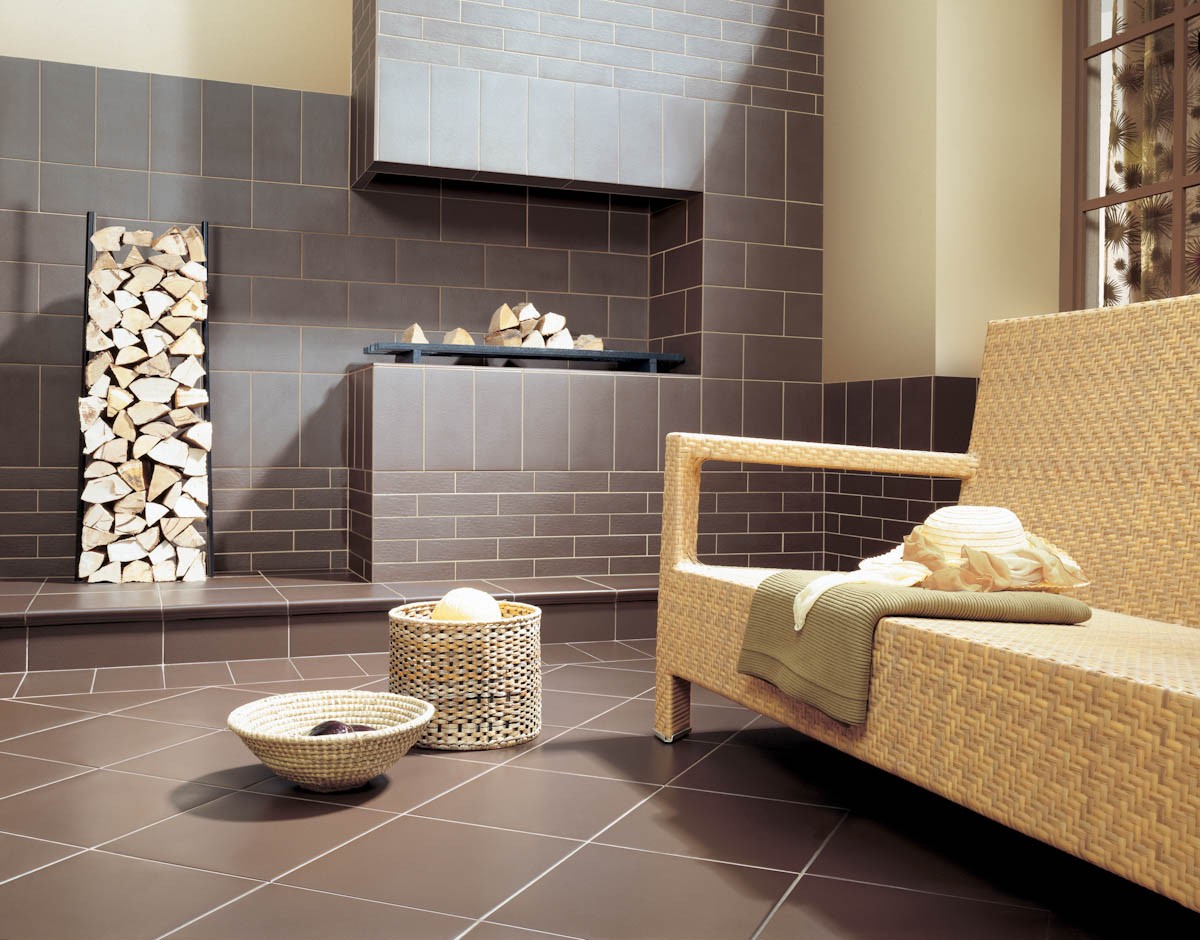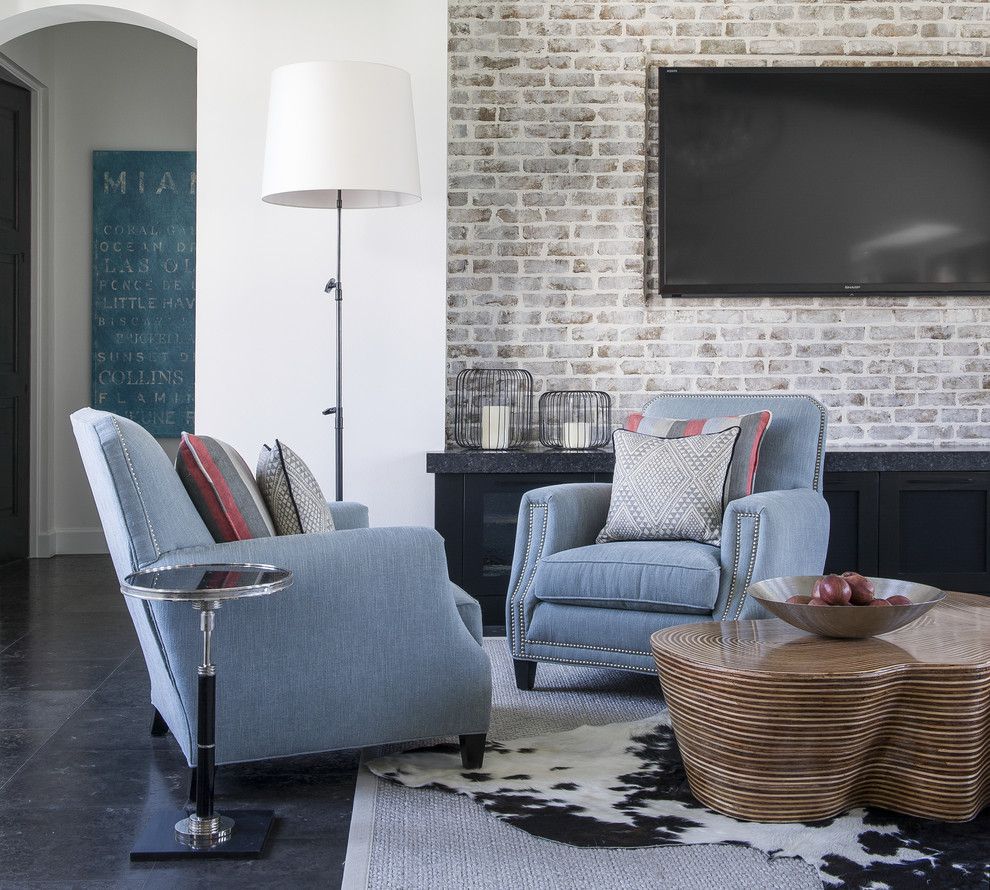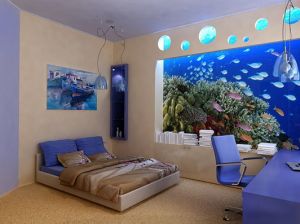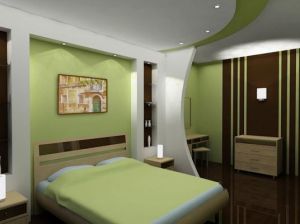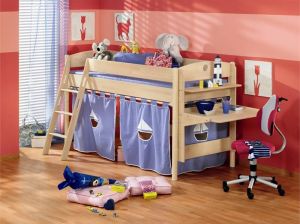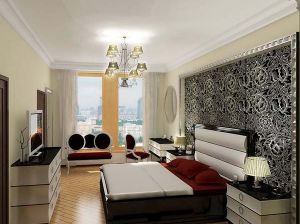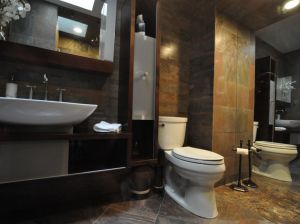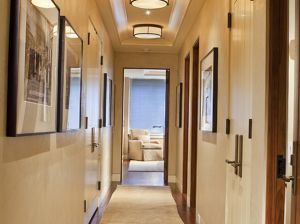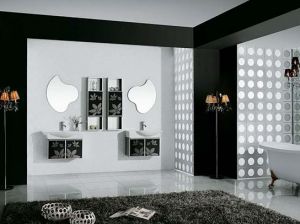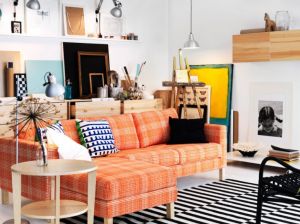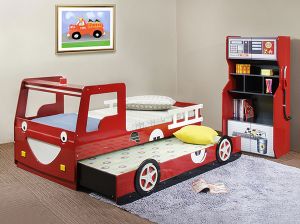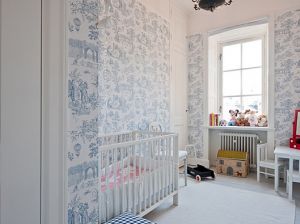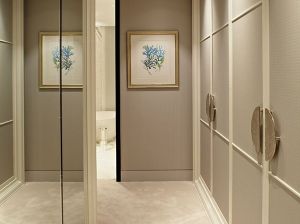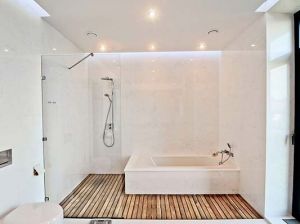Clinker tiles for facade and interior (20 photos): characteristics and examples of decoration
Content
In the field of modern construction, the term “clinker” exists, it includes numerous materials, the raw material for which is shale clay, which is subjected to the method of extrusion. Thanks to this treatment, building materials are given an excellent margin of strength characteristics, as well as increased resistance to temperature changes.
One of the features of the clinker is its environmental friendliness. The list of pluses replenishes the appearance, which is characterized by special attractiveness. The scope of clinker materials is quite extensive: facing of sidewalks, stoves, stairs, pools and other objects.
The most popular product is clinker tile. This widely used material was first produced in Germany by adding dyes to the shale clay and firing it. At the moment, there are countless types of clinker tiles for every, even the most refined, taste.
Features of the production of clinker tiles
As already mentioned, all clinker elements that are used for finishing are produced by extrusion. The process of molding extruded clinker is very similar to the method of manufacturing a plastic profile. Its meaning is as follows: shale clays are pressed through holes of a certain shape, and then tiles of the required format are cut. After the outlines are given to the raw materials, the product is fired. This happens in a tunnel-type furnace with a length of about 150 meters at a temperature of about 1300 degrees. Firing ends at the moment when complete sintering occurs. A feature of clinker tiles produced in such a technically sophisticated way is the uniformity of the structure: without inclusions, voids and cavities. The material becomes resistant to aggressive environments, sudden temperature changes and abrasion.
Characteristics and advantages of clinker tiles
Clinker tiles in comparison with the usual one have a number of excellent characteristics that make its use the most popular:
- Clinker products have a high margin of strength.
- They have a pretty aesthetic appearance.
- Increased resistance to alternating freezing and thawing cycles is provided due to the degree of clinker moisture saturation.
- The low ability to absorb water provides the tile with excellent resistance to the negative effects of frost, which leads to its active use in aggressive environments.
The advantages of clinker tiles win over other materials of identical purpose:
- absolute environmental friendliness allows you to use tiles for interior decoration of the apartment in the bathroom, kitchen, as well as when facing fireplaces and stoves
- resistance to water absorption determines the use in an environment with high humidity: in the kitchen, in the bathroom, and under the influence of direct rainfall when arranging terraces, basements and other outdoor objects
- increased strength and excellent frost resistance
- unlimited service life
Together with thermal insulation, clinker tiles serve as an excellent coating for the exterior decoration of facades.
Typology of materials from clinker
Clinker tiles are made for many different purposes. In the face of a large number of finishing options, there are several types of clinker:
- Technical clinker - used in the arrangement of roads and sidewalks;
- Water-resistant clinker - used for facing swimming pools, kitchens, bathtubs and bathrooms;
- Facing clinker - this is how to finish parts of buildings: basement component, terrace, stairs;
- Special clinker - necessary for difficult architectural work.
When viewed from the decorative side, clinker can be unglazed and glazed or vitrified.
Scope of a brick tile
Currently, a wide range of clinker materials is presented on the building technology market. Choosing a clinker tile is quite difficult due to many variations. But making a decision in favor of clay products will be the best choice. The most common types of clinker tiles are presented below.
Facade tile
Every year, the facade decoration with clinker tiles is developing rapidly. In order to use the material for outdoor decoration, it is necessary to choose a material that has a number of characteristics: wear resistance, frost resistance, moisture resistance. Clinker tiles for the facade have such qualities.
Brick brick tiles
This type of material quite often finds application in modern construction. To use this type of brick tile for brick, you should understand the advantages and disadvantages.
Pros:
- unlimited service life
- aesthetics, especially important when implementing a decorative idea
- unlimited scope
- universality
The main and main disadvantage can be considered high cost.
Tiles for porch and steps
Probably, everyone saw buildings with exterior decoration, where clinker tiles for steps are used, as well as clinker tiles for the porch. The main choice of this particular building material is associated with such advantages as:
- high frost resistance
- high wear resistance
- lack of slippery surface
- strength characteristics
Practical drawbacks of such products do not have.
Clinker materials for interior decoration
The use of clay products in the interior of rooms has become very popular recently, initially having priority in facade work. Clinker tiles for interior wall decoration serve as an excellent design solution even in the decorative decoration of fireplaces in an apartment, and the variety of materials of different colors makes it easier to choose.
For internal repair work in the apartment, clinker floor tiles are often used. Its use is due to excellent strength characteristics and a variety of options. Clinker floor tiles are great for hallways, kitchens and bathrooms.
The constant German quality and responsible approach to the production of clinker products ensure their application in various fields of construction. Strength characteristics make their operation easy and time-consuming, whether it is cladding with clinker tiles or interior decoration.
